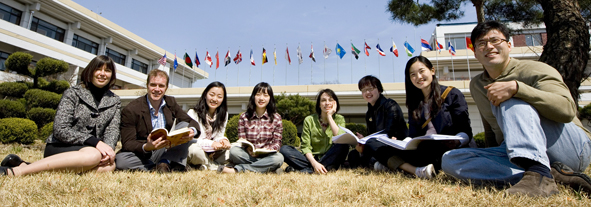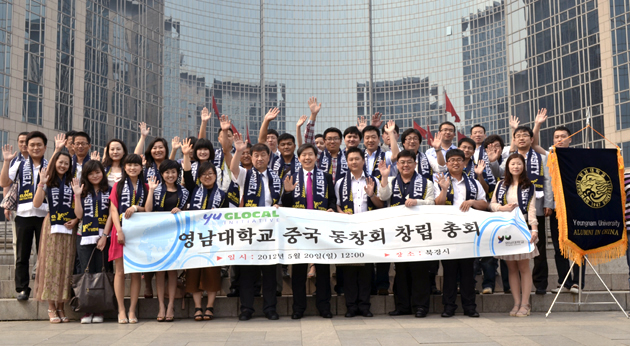YU ranks 19th in internationalization sector, as its diversification of international exchange stands out
[October 9, 2012]
YU (president Lee, Hyo-soo) was ranked 1st place for 3rd straight year among private universities outside of the Seoul area after topping the list in 2010 and 2011 during the 2012 Joongang-ilbo University Evaluations. The results were from summing up the scores in 4 sectors (300 points total) such as professor research (100 points), educational conditions (90 points), reputation and society advances (60 points), and internationalization (50 points) of 102 4-year universities (100 universities in previous year) across the nation.
In the internationalization sector, YU was ranked 19th in the nation together with POSTECH. In 2010, it was ranked 27th, 22nd in 2011, and finally in the top 20 this year. This is a feat that is very difficult for a university located in a region outside of the Seoul area. This is the result of YU giving special attention and sparing no efforts for internationalization.
The level of internationalization of YU grew considerably in the past 3 years. The number of overseas sister universities grew rapidly from 120 in 2009 to 220 as of September 2012. The number of international students studying in YU grew from 1,030 students from 18 countries to 1,212 students from 46 countries. The number of YU students being sent off to foreign schools grew as well. It was less than 700 in 2009, but after just 3 years, it exceeded 1,280. In September alone, 231 YU students were dispatched to 14 countries around the world where they will grow as global citizens.
International exchange improved not only in quantity, but in diversity as well. For example, the 'YU-EU Center' that opened in March of last year with the support of the EU headquarters, as well as 'American Center' and 'China Research Center' act as windows for diverse international exchange. Recently, it became the first Korean university to install the 'Arab Cultural Center' within campus. In March of last year, it signed an exchange agreement with the Saudi Arabia Cultural Mission, and last month, it was selected by the National International Exchange Center for universities operating perliminary courses for Saudi Arabia's 'King Abdulla Scholarships' program. As of September 2012, there are a total of 12 international students from the Arab region made up of 11 Saudi Arabian students and one student from Tunisia. Including these students, there are a total of 95 Muslim students studying at YU. Fahad Faisal Ahmadi (23), a freshmen at the YU School of Mechanical Engineering, stated, "I am really thankful of YU for paying special attention to us," and added, "I hope it becomes a campus in which various religions and cultures coexist with mutual respect."
Furthermore, YU became the first Korean university that made alumni associations among international students once they returned to their home countries after graduation, and is thus creating a new Hallyu. For example, in January, Vietnamese students who graduated from YU established the YU Vietnam Alumni Association in Ho Chi Minh City, Vietnam, and in May, Chinese graduates launched the YU China Alumni Association for the first time among Korean universities in Beijing, China. The YU Alumni Association is also scheduled to be created in Indonesia in the near future, so different ways of globalization are gaining attention.
In result, the 'Global Campus 7-4-3' strategy pursued by YU is also expected to gain strength. YU is currently looking at 70 countries around the world, in which 4,000 students will be sent every year, while hosting 3,000 international students for both in-bound and out-bound globalization.












